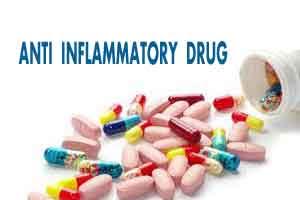- Home
- Editorial
- News
- Practice Guidelines
- Anesthesiology Guidelines
- Cancer Guidelines
- Cardiac Sciences Guidelines
- Critical Care Guidelines
- Dentistry Guidelines
- Dermatology Guidelines
- Diabetes and Endo Guidelines
- Diagnostics Guidelines
- ENT Guidelines
- Featured Practice Guidelines
- Gastroenterology Guidelines
- Geriatrics Guidelines
- Medicine Guidelines
- Nephrology Guidelines
- Neurosciences Guidelines
- Obs and Gynae Guidelines
- Ophthalmology Guidelines
- Orthopaedics Guidelines
- Paediatrics Guidelines
- Psychiatry Guidelines
- Pulmonology Guidelines
- Radiology Guidelines
- Surgery Guidelines
- Urology Guidelines
Anti-inflammatory drugs provide little benefit to back pain Study

Beware! Consuming non-steroidal anti-inflammatory drugs, such as Ibuprofen, to treat your back pain may provide little benefit, but can cause stomach ulcers and bleeding, reveals a new study.
The results found that patients taking anti-inflammatory drugs were 2.5 times more likely to suffer from gastro-intestinal problems such as stomach ulcers and bleeding.
The findings, published in the Annals of the Rheumatic Diseases, revealed that only one in six patients treated with the pills, also known as NSAIDs, achieve any significant reduction in pain.
The study is the latest work from The George Institute questioning the effectiveness of existing medicines for treating back pain.
Lead author Manuela Ferreira from the University of Sydney said the study highlights an urgent need to develop new therapies to treat back pain which affects 80 percent of Australians during their lifetime.
"Back pain is the leading cause of disability worldwide and is commonly managed by prescribing medicines such as anti-inflammatories. But our results show anti-inflammatory drugs actually only provide very limited short-term pain relief. They do reduce the level of pain, but only very slightly and arguably not of any clinical significance," Ferreira added.
The team examined 35 trials involving more than 6000 people.
"Millions of Australians are taking drugs that not only do not work very well, but are also causing harm. We need treatments that will actually provide substantial relief of these people's symptoms," said co-researcher Gustavo Machado.
"Better still, we need a stronger focus on preventing back pain in the first place. We know that education and exercise programs can substantially reduce the risk of developing low back pain," Machado explained.

Disclaimer: This site is primarily intended for healthcare professionals. Any content/information on this website does not replace the advice of medical and/or health professionals and should not be construed as medical/diagnostic advice/endorsement or prescription. Use of this site is subject to our terms of use, privacy policy, advertisement policy. © 2020 Minerva Medical Treatment Pvt Ltd